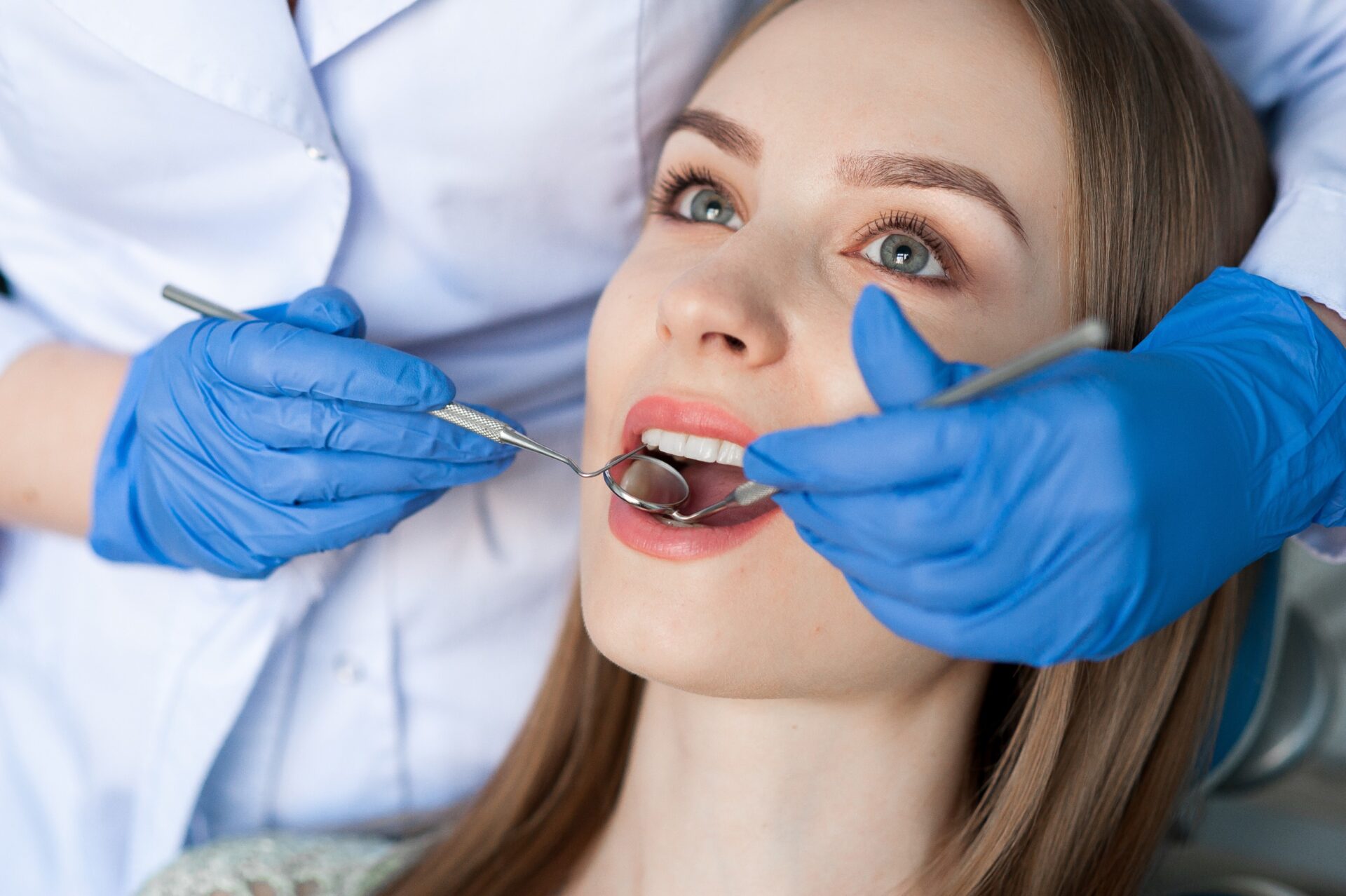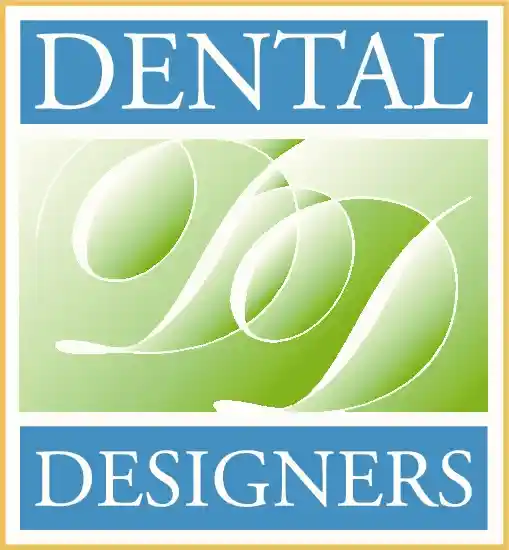10 Most Common Questions Asked at our Rockford Dental Office

Patients often have many questions when going to a dental visit. We at Dental Designers Rockford want you to be educated about proper dental care for yourself and your family. Below, we answer the most common questions that patients pose to us so that you can get an idea of what 21st-century dentistry is capable of! We will also discuss some of our dental services below. Here are 10 most common questions and answers asked at our Rockford dental office.
1. When should I go to the Dentist?
If you have pain or discomfort, you should call your dentist right away to get checked and make sure there is nothing serious. If there are no concerns, then you should schedule your dental visits once every 6 months for dental checkups. Unlike before, you can visit the dentist with certainty due to our advanced safety measures. It is important to have regular dental visits.
2. Why Does a Child Need Sealants?
Dental sealants provide an extra layer of protection for your child’s molars. We apply this thin plastic coating to the chewing surface of the back teeth, which tend to have many narrow grooves where food particles and bacteria can hide. Sealants fill in those pits and grooves to create a smooth surface that’s easier to clean with brushing.
Getting sealants placed as soon as molars emerge, around ages 5-7, can prevent up to 80% of cavities in those teeth. They provide a barrier against decay that keeps kids smiling. Sealants are quick and painless to apply. Ensuring they fully cover the tooth surface is part of your child’s regular dental exam with us.
3. Can You Go to the Dentist While Pregnant?
Yes, visiting the dentist while pregnant is encouraged to maintain your and your baby’s health. Good oral health during pregnancy has been linked with healthier birth outcomes. Hormone changes can also increase your risk for some dental issues. We want to monitor you so we can prevent more severe problems.
The main thing is to inform our team of your pregnancy and due date. We may make some adjustments, such as using abdomen guards and pillows to ensure your comfort during cleanings and procedures. Necessary dental work is best performed in the second trimester. Always check with your OBGYN, but rest assured dental care is safe throughout pregnancy.
4. How Do Dentists Pull Teeth?
Many general dentists are trained to perform routine tooth extractions. We numb the area thoroughly so you don’t feel anything during the extraction. Then, dental forceps loosen the tooth and gently rock it out of the socket. After it’s removed, we clean the area and place gauze to control bleeding.
The actual process takes just minutes. Some residual bleeding and minor soreness are normal afterward. Over-the-counter pain medication helps with discomfort. The remaining space will fill in with bone over the next few months. We may recommend replacing the missing tooth with a dental implant or bridge, depending on your needs.
5. Can Dentists Prescribe Medication?
Yes, dentists can prescribe medication as part of your treatment plan. Most commonly, we prescribe antibiotics or pain relievers related to dental surgery, infections, injuries, and the like. We may also prescribe anti-anxiety medications for highly nervous patients in some instances.
Dentists complete medical training along with oral health training before they are licensed. We understand how various medications interact with dental care, so we monitor all your prescriptions and supplements to optimize your oral and overall health. Don’t hesitate to share your complete medical history with your dentist.
6. When Will a Dentist Decide to Pull a Tooth?
We recommend extracting a tooth for several reasons. Most often, it’s due to severe tooth decay or injury that is too extensive to repair with a filling or crown. Cracked teeth usually must be pulled if the crack extends below the gum line, so we must schedule a consultation.
We also extract teeth to alleviate crowding before orthodontic treatment or to make room for dentures. Wisdom teeth that become impacted or infected frequently require extraction as well.
The goal is always to save natural teeth when possible, but extractions are sometimes necessary. Rest assured, we only advise tooth removal when essential or if a tooth is already non-salvageable, prioritizing patient care. Talk to us about all your tooth loss options.
7. What Type of Dentist Does Root Canals?
General dentists or endodontists perform root canal therapy. Endodontists complete 2-3 additional years of advanced training, specifically in root canal procedures and interior tooth issues, ensuring expert care for patients in Rockford. Our team is committed to providing expert care and can handle all dental needs, including more complex cases.
During a root canal, we remove infected pulp tissue inside the tooth structure and disinfect the interior canals before sealing them to prevent further infection. It’s essentially a “deep cleaning” that saves the tooth rather than pulling it. The procedure itself is similar to that of a general or specialty dentist.
Let us know if you experience any sensitivity or pain in your teeth’s nerves. That can indicate interior decay or inflammation needing root canal therapy or other dental procedures. Addressing problems early on gives teeth the best chance of survival.
8. How Much Do Dentists Make?
Dentist salaries vary based on years of experience, specialty, and geographic region. The Bureau of Labor Statistics reports the average pay nationwide is $159,200 annually. Typically, dentists earn between $150,000 and above per year.
Specialists such as orthodontists earn more, averaging around $230,000 annually. Those with their private practices also have the potential for higher pay. Dentistry consistently ranks among the most financially rewarding healthcare careers. Excellent compensation reflects the advanced skill set required in various dental specialties.
9. How Long Does It Take to Become a Dentist?
The educational path to becoming a licensed dentist spans 7-8 years on average after finishing high school. You must complete a Bachelor’s degree before entering dental school to earn your DDS (Doctor of Dental Surgery) or DMD (Doctor of Dental Medicine).
Dental school itself takes four years. Then, dentists typically complete a one-year general practice residency program or specialty training in orthodontics, periodontics, etc. All dentists must pass written and clinical licensing exams before practicing independently in their state.
It’s a long road, but improving patients’ well-being through oral healthcare is rewarding. From your first tooth erupting as a baby to losing your last tooth late in life, having excellent family dentistry helps you smile confidently.
10. Do Dentists Go to medical school?
Dentists don’t go to medical school. Instead, after finishing college, they complete a four-year Doctor of Dental Surgery (DDS) or Doctor of Dental Medicine (DMD) program. The first two years center heavily on classroom scientific study, while the last two years have focused more on hands-on clinical work under supervision.
Some universities combine medical and dental students for certain classes during the first two years. Subjects like anatomy, physiology, pharmacology, and pathology overlap both fields. However, most dental education specializes in oral health treatment methods.
Dentistry is recognized as its medical discipline, and our team is dedicated to providing comprehensive care. Dentists are designated doctors because of their advanced clinical degrees concerning teeth, gum, and mouth care.

